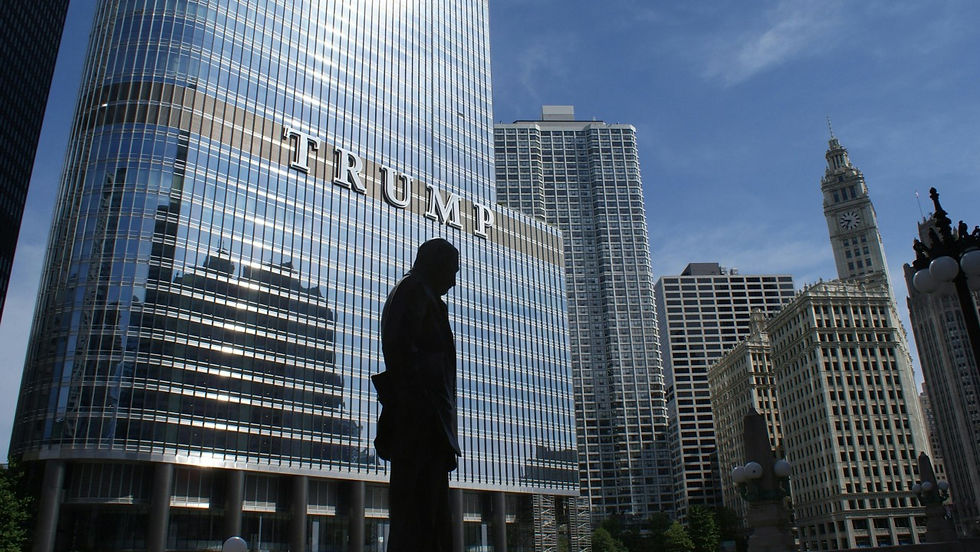Labour - Health, Crime and Education
- Oct 5, 2023
- 5 min read

In the run up to Labour Party Conference, Trafalgar Strategy will be diving into Labour’s policy process and the pledges it is making to win over voters ahead of the next election
In the sixth instalment of our series, we share our guide to Labour’s approach to healthcare, crime, and education.
Building an NHS fit for the future
In response to the multifaceted challenges facing the UK's healthcare system, the Labour Party has articulated three overarching goals to meet their mission of ensuring that the NHS is fit for the future:
1. An NHS that is there when people need it
Labour have stated that their immediate priority will be to address delays to ambulances, A&E, GPs, and hospital appointments. To do this they pledge to:
Train 10,000 more nurses and midwives and 7,500 more doctors annually and negotiate a fair pay deal.
Improve social care, emphasising ‘home first’ and prevention-led approaches.
Create a National Care Service.
2. Fewer lives lost to the biggest killers
Labour will target three major killers to minimise avoidable deaths: Cancer, Cardiovascular Disease (CVD), and Suicide. They have pledged to:
Improve cancer survival rates by hitting all NHS cancer waiting time and early diagnosis targets within five years.
Reduce deaths from heart disease and stroke by a quarter within ten years
Reverse the rising trend in the rate of lives lost to suicide so they are declining within five years
3. A fairer Britain where everyone lives well for longer
Labour has pledged to improve healthy life expectancy for all and halve the gap in healthy life expectancy between different regions of England. To do this they seek to:
Tackle wider inequalities that lead to poor health
Focus on prevention and early childhood intervention including initiatives like the Children's Health Plan, balanced curriculum in schools, and targeted measures to end the promotion of unhealthy foods.
Shift more care into the community like encouraging local partnerships between the NHS and social care on hospital discharge.
In theory, these pledges would make for a fitter NHS. Afterall, who doesn’t want shorter waiting times, less deaths, more doctors, and a healthier population? However, many questions remain. Specifically about how much these pledges will cost and how it will all be funded. Starmer has been hesitant thus far to commit to spending more on the NHS than the current government but it's clear that significant resources would be required to meet the targets set by Labour.
Many of the goals Labour have committed to, notably on waiting times, are also not new. Delivering targets more successfully than previous governments is a feat which will be easier said than done, particularly given that any reform of the NHS is often met with suspicion from the electorate.
____________________________
Making Britain’s streets safe
In recent polling by the government, it was found that the greatest concern for British people was crime and antisocial behaviour making prioritising it as one of Labour’s five missions a no-brainer ahead of the election. In Labour’s mission statement, they break their approach into four key targets:
1. Halve the level of violence against women and girls by:
Establishing specialist support for rape and domestic abuse victims in the court system and creating specialist rape courts.
Putting specialist domestic abuse workers in the control rooms of every police force and establishing specialist rape units in every police force
Tackling misogyny online and within schools
2. Halve the incidents of knife crime by:
Making grooming and criminal exploitation of children illegal
Taking a prevention first approach by providing more support in schools and A&E departments to reach young people who are becoming involved in gangs.
Tackling online sites promoting and selling machetes and dangerous knives.
3. Raise confidence in every police force to its highest levels by:
Restoring neighbourhood policing with 13,000 new neighbourhood police.
Raising standards in policing by overhauling training, misconduct and vetting procedures.
Introducing a strong antisocial behaviour plan
4. Reverse the collapse in the proportion of crimes solved.
Increasing the Crown Prosecutor pool by 50% with Associate Prosecutors to bring down the backlog in cases.
Police and justice system working together to tackle bureaucracy involved in bringing charges.
As we’ve said, it’s politically sensible for Labour to focus on tackling crime. It’s also an area in which their leader, Sir Keir Starmer, can credibly refer back to his background as head of the Crown Prosecution Service. However, reforming the courts and education is one thing, dealing with the police is another. Public confidence in the police has dropped by 7% in the past year and recent inquiries like the Casey Report have found systemic racism, sexism, and homophobia in police forces across the UK.
________________________
Breaking down the barriers to opportunity at every stage
Labour has pledged to break down barriers to opportunity by setting two overarching goals: ensuring that children’s future earnings are no longer limited by those of their parents and making Britain one of the fairest countries in the OECD. They have broken this down further into five more specific policy goals:
1. Make security the foundation of opportunity
Requiring public bodies to adopt transparent and effective measures to address the inequalities that result from differences in socio-economic status.
2. Reform childcare and early years support so children have the best start in life
Training more health visitors, ensuring easy access to support and ending the postcode lottery for family assistance.
Recruiting more mental health professionals, reducing waiting times, and establishing community-based hubs for early intervention.
Delivering new childcare places
3. Deliver a broader education and the highest standards in schools
A comprehensive overhaul of education, replacing metrics with report cards, focusing on a child's entire educational journey, and addressing curriculum issues.
Commitment to teacher recruitment and retention reforms.
Advocating for inclusive education, supporting children with special needs, mental health initiatives, and additional mentorship in Pupil Referral Units.
4. Provide pathways to good prospects for all
Boost education and training, targeting 80% qualification to Level 3 by 2035.
Introducing a fairer tuition fee system, making higher education accessible and reducing monthly repayments for graduates.
5. Spread opportunity beyond education
Housing - Labour aims to address the housing crisis by building more houses. Plans include reforming compulsory purchase rules, supporting development corporations, and introducing a comprehensive mortgage guarantee scheme.
Jobs - Proposals include banning zero-hours contracts, addressing one-sided flexibility, supporting collective bargaining, and enforcing workers' rights.
In their mission to break down barriers to opportunity, Labour are returning to the grassroots of what they feel comfortable talking about; social mobility. With the UK economy marked by high levels of economic and regional inequality, there is also a clear challenge for them to target. Tackling inequality through educational reform will be relatively uncontroversial. Very few people will object to fairer and greater opportunities for young people. However, the challenges will come when Labour turns to reform of housing or jobs, where often the effect of policy can be to raise opportunity for one group by taking wealth from another.




Comments